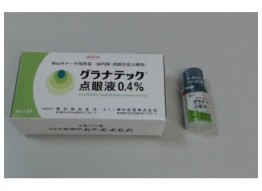Lisinopril tablets 5 mg for hypertension and chronic heart failure
What are Lisinopril tablets 5 mg for hypertension and chronic cardiac failure?
Lisinopril is an inhibitor of angiotensin-converting enzyme. It works by suppressing the production of angiotensin II, a peptide hormone responsible for constricting blood vessels). By this, Lisinopril tablets reduce the blood pressure, improve exercise duration and left ventricular ejection percentage, reduce risk of heart failure and mortality in diabetic patients.
Lisinopril tablets are effective for the treatment of hypertension and chronic heart disease (mild to severe). This medicine is generally safe and well-tolerated even for elderly patients. Unlike other angiotensin-converting enzyme inhibitors, active principle is not metabolized by the liver, and is excreted unchanged in the urine. As lisinopril doesn't include thiol, this medicine cause less adverse immune reactions. The action of Lisinopril tablets lasts for 24-36 hours, longer than any other drug of in the same class, providing stable blood pressure.
Active principles: lisinopril hydrate
Amount: 100 tablets
Maker: Sawai Pharmaceutical Co., Ltd., Towa Pharmaceutical Co., Ltd., Nichi-Iko Pharmaceutical Co., Ltd., Japan
Indications: hypertension, chronic heart disease (chronic cardiac failure)
How to take
For hypertension: adults should take 2-4 tablets (10-20 mg of active principle) at a time, once a day. Patients with severe hypertension and renal disease may start with 1 tablet (5 mg) at a time, once a day. Children of 6 years and older should take 0.07 mg of active principle per kilogram of body weight, at a time, once a day. The maximum daily dosage for children is 4 tablets (20 mg).
For chronic heart disease: adults should take 1-2 tablets (5-10 mg) at a time, once a day. Patients with renal disease may start with 0.5 tablets (2.5 mg) at a time, once a day.
Contraindications: do not use for the following patients:
- pregnant, possibly pregnant, or breastfeeding women,
- patients with angioedema,
- patients on hemodialysis,
- patients receiving apheresis.
Important information
As these tablets may cause dizziness, patients should take care when driving a car, working at heights or operating dangerous machinery.
If an allergic reaction occurs, patient needs to stop using the medicine and consult with their doctor. If patient is taking any other medication or treatment, they should consult with their doctor in advance.




